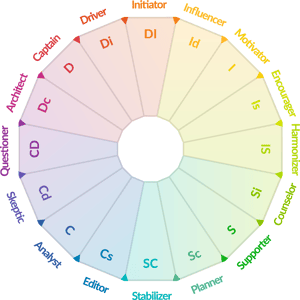
In an ideal world, we’d all find jobs we love right off the bat.
But a lot of the time, this isn’t the case. Because we are all unique, we may not always fit perfectly into a specific position. If you feel stuck in a draining job that you feel yourself hating, you can take steps to improve your situation and help the position fit your personality better.
What are the signs you don't like your job
You dread Mondays
While most professionals working a standard 9-to-5 typically live for the weekends, it is not normal to consistently dread every Monday. If you usually spend your Sunday anxious about work the next day or in a depressed mood thinking about the work week ahead, it's probably time for you to move on.
You dislike your boss
You're not always going to like everyone, but generally, it will affect numerous aspects of your job if you have a bad boss. This can induce more stress and negative feelings-- remember, people leave managers, not jobs!
You work on autopilot
"Just going through the motions" or executing tasks without much thought behind them is a clear sign that you are ready for a more challenging and exciting new position. When you're working on autopilot or experiencing indifference in your role, your productivity and morale are sure to fall too.
You'll find any excuse to avoid work-related events
Although many professionals opt to keep work and personal life separate, if you find yourself constantly avoiding any and all work-related events, it may be symbolic of your dissatisfaction at work. A better opportunity could also offer positive working relationships and corporate culture-- which could inspire you to participate more.
You struggle visualizing a future with the company
If your current role lacks training and development opportunities or doesn't have a clear trajectory of growth, you're more likely to experience feelings of complacency or boredom. Finding a job that challenges you and encourages growth is good for your career and your mental health.
Your quality of work is decreasing
If you hate your job, your quality of work will inevitably fall. If you are unhappy, you probably aren't motivated or passionate about your duties. You most likely are doing the bare minimum to keep afloat. This is a telltale sign that your current position is wrong.
You frequently have negative thoughts or talk poorly about your job
From your perspective, there are far more bad days than good days in the office. Constantly catching yourself thinking about how much you loathe your work or telling your friends, "I hate my boss," clearly indicates that you are working a job you hate.
You feel undervalued
As human beings, the need for support and validation is built into our DNA. Of course, we may not always get the affirmation we need. If receiving little to no praise, being expected to perform outside your line of duties, constantly hearing negative feedback, or feeling isolated from others is a pattern for you in your workday, you are likely to develop feelings of resentment and distaste towards your job.
Your work-life balance is struggling
A healthy work-life balance is vital for employee wellbeing and mental and physical health. Establishing that balance can sometimes be easier said than done. While some career experts may recommend reframing how you view work-life balance by identifying what is most important to you, if finding that balance is impossible, then it might be time to look for a better opportunity that allows that balance.
You feel burnout
Employee burnout is not an unfamiliar concept, and it isn't a joke either--it can have severe physical and mental health effects. If you feel unmotivated and disinterested at work and home, physically and mentally exhausted, or lack confidence in your ability to execute your duties, you are probably experiencing burnout.
Your gut is telling you to leave
If you've been toying with the idea of a new role, or a career change altogether, it might be time to start your job search. Listening to your gut and understanding that perhaps there is a reason that little voice in your head keeps pushing you towards a new position is sometimes the best thing you can do for yourself.
I hate my job, what do I do?
If you hate your job, your mental and physical health could likely benefit from a change. It can sometimes be hard to know how to have those tough conversations, and if they don't yield results, it's easy to feel stuck or trapped. The first step is acknowledging why you hate your job and looking for solutions to remedy those issues.
Because we are all unique, we may not always fit perfectly into a specific position. If you feel stuck in a draining job that you feel yourself hating, there are steps you can take to improve your situation and help the position fit your personality better.
Before learning how to adapt to your job, it’s important to have a bit of background on personality.
Introducing DISC
We use a framework called DISC to better understand individual personalities. DISC classifies personalities into a few categories that we refer to as D (dominance), I (influence), S (steadiness), and C (conscientiousness). By categorizing personalities in this way, we can learn how to communicate with others in a way that helps them understand and relate to us. For example, someone who is a supportive, people-oriented S-type is less likely to enjoy an overly fact-focused, detailed discussion. They may become bored or frustrated, missing the point of the conversation entirely. On the other hand, if they were an analytical, questioning C-type, they would probably appreciate a discussion that focuses on specific, concrete facts and avoids involving much emotion.

The 4 categories of DISC can be further broken down into 16 unique personality types. We give each an easy to remember name, as you can see in the Personality Map here:
To read more about the different DISC types, visit our DISC Personality page.
Energizing vs. Draining Tasks
Generally speaking, different personality types tend to feel energized or excited by different behaviors. Similarly, they may feel drained by different tasks. For example, a high-energy, assertive D-type may feel drained if they have to sit and listen to someone review granular data in a meeting. This same person, though, is likely to feel energized by leading a meeting themselves and discussing progress on team goals.
If you’re in a position that requires you to frequently do tasks that drain your energy and doesn’t give you the opportunity to engage in energizing behaviors, you’re more likely to feel regularly exhausted. If you feel stuck in your job, it may not mean the position isn’t right for you - it may just mean you’ve taken on too many responsibilities that have a negative impact.
Before quitting a job, assuming that you’re treated well otherwise, talk to a supervisor or coworker about potentially reframing the position to include more energizing tasks and fewer draining tasks.
To find your energizing and draining tasks, take our free personality test and visit our Personality Hub to learn more about yourself.
Communication and Company Culture
Your ideal workplace is likely one where your boss and colleagues treat you in the way you’d like. For example, more extroverted I-types may prefer that their supervisors and peers communicate casually and often with them, while more reserved C-types are more likely to want plenty of personal space from their coworkers.
For example, here is how a DISC type C personality, more specifically, an Analyst, may want to interact with the people they work with:
|
YOUR BOSS |
YOUR PEERS |
YOUR DIRECT REPORTS |
|
|
|
If you feel like your current workplace communication or culture isn’t working for you, try communicating your needs to your boss, peers, and direct reports. Make an effort to openly share how you’re feeling before you resign yourself to disliking your workplace.
Making Career Choices
Jobs may always have their flaws, but often, there are ways to ease the stress and adapt your responsibilities. However, If you’ve gone as far as you can in your current position and are thinking about making a career shift, check out our full-length ebook, Personality and Career Decisions.
Key takeaways for people who hate going to work:
In some cases, the best solution to working a job you hate is finding a new one that works better for you. Sometimes, that is not an option, and you must find a way to adapt or find a compromise to improve your current position. By first identifying what is making you hate your job, you will be able to figure out how to best move forward. Many times, people find themselves unhappy in their roles because they just don't jive with the management style of their boss, the communication and working styles of their colleagues, or the tasks related to their role. By understanding the role personality plays in your job satisfaction and ability to perform at work, you can know how to adjust your day best and find compromises to make your work-life better.
Get started with a free personality assessment today.







